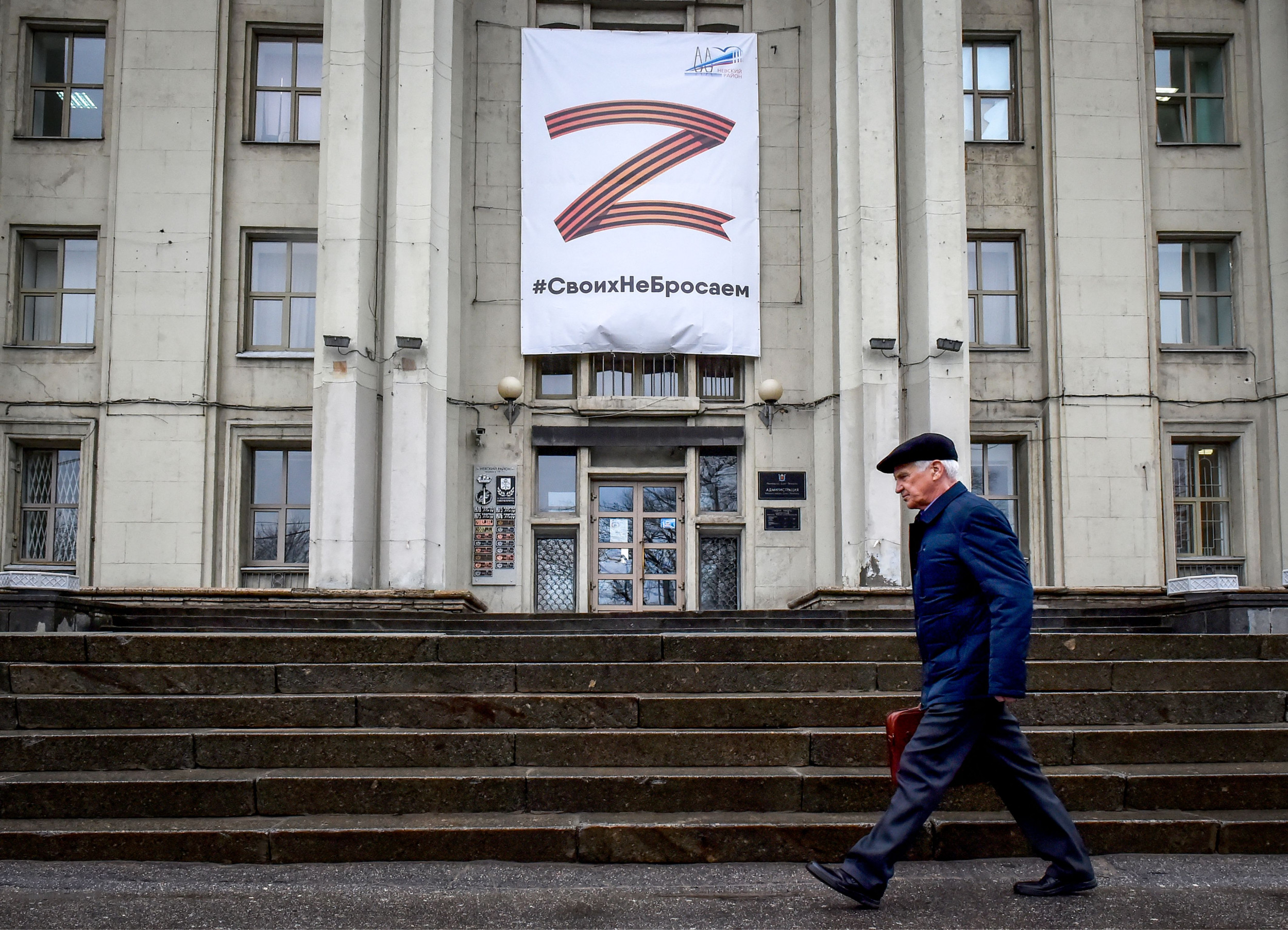As Putin carries out a military campaign against Ukraine, he’s also driving one of disinformation. Russia has called for the “denazification” of Ukraine, claiming that the country brims with neo-Nazis who are “hiding behind civilians as a human shield.” Supposedly, America has also propped up biolabs in Ukraine that were backed by none other than Hunter Biden and George Soros. Numerous times, Russia has slipped off its gloves and feigned innocence for Ukraine’s casualties—apparently, the massacres were staged and the dead planted.
To justify a war, Russia has gone to extreme lengths to tangle the truth, but this is no losing strategy. Putin’s approval has soared from 69 percent in January to 83 percent by the end of March. Brazen and buoyed in support, Putin is left to his own devices, the force of public support behind him.
But who is buying these outlandish claims? Russia’s disinformation efforts might appear fake, fickle, and all too transparent to its ambitions, but it works.
The current Russian disinformation strategy is much different than propaganda of the past; it works in incredibly high volume, it’s so drastically detached from the truth, and it aims to confuse its citizens and enemies. Primed for the modern day, this strategy offers Russia an easy tool to achieve its goals while leaving few solutions to address it.
Before looking at Russia’s strategy, it’s important to look at what has traditionally made propaganda effective. Successful propaganda tends to originate from a strong authority that relays clear, consistent messages to the public. Hitler, for example, established the Reich Ministry of Public Enlightenment and Propaganda as a central authority to oversee and disseminate propaganda that vilified Jews, and the Nazis were succeful in garnering support until the regime’s end. But in many ways, Russia’s campaign of disinformation breaks away from the tried and true principles of the past. Russia violates conventional wisdom about maintaining truth and credibility and avoiding contradictions, but these aberrations could help Russia more than it might hurt it.
In pursuing its disinformation campaign, Russia has exploited two trends: the rise of social media and increased polarization.
First, because social media is difficult to regulate, there is little filter on what a social media user can say and see. And when it comes to Russia, that means that the country can exploit platforms to push as much propaganda as it wants, so users will be more likely to view it. Indeed, a study by the anti-misinformation outlet NewsGuard found that a fresh TikTok account will encounter misinformation about the Ukraine war within 40 minutes of scrolling. Rather than controlling its propaganda, Russia seems to be opening a valve and letting it flood out. While such an uncontrolled spread might have been reckless in the past, it might be the best way for the country to operate over social media. According to a Vanderbilt study, when users see repeated statements, they are more likely to judge them as true regardless of their prior knowledge. Moreover, while Russia’s claims may appear patently false, its disinformation can hide behind a fabricated mass of supporters. The country employs paid internet trolls to sow doubt on online forums and comment sections, all while bots push and support these sentiments. When it appears that many people support a certain opinion, users are more likely to be persuaded and believe that what they are reading is trustworthy.
The second trend that Russia exploits is the increasing level of polarization seen across the globe. Russia recognizes that a certain tribalism has swept through countries like the United States, and it has tailored disinformation to confuse and create strife within its enemies’ borders. Specifically, Russia’s decision to stray away from a consistent narrative, instead offering more sporadic, wild, and at times contradictory stories, taps into the West’s polarization problem. The same day that the Russian state media pushed its biolab allegations against America, Fox News’s Tucker Carlson gave this claim airtime (and thus legitimacy) on his show in order to capitalize off a popular talking point for conservative pundits. Here, Russia was able to infiltrate our divided political landscape by providing the country’s political extremes with exactly what they want. In this way, Russia is pulling out all the stops to destabilize America’s political semblance.
What’s less clear is how to handle this disinformation. Strict measures such as setting up a registry of users or intensely policing content might create a chilling effect on free speech, which would be disastrous in a democracy. Therefore, it might be prudent for countries to look towards how they can minimize the harms of disinformation, rather than trying to stop them outright. Educating citizens about disinformation would be a great first step, but it may be better to “forewarn” by preempting Russia’s disinformation. The first impression is always the most important for audiences, so we should beat back disinformation before it spreads virulently. An approach centered on handling disinformation will sterilize efforts by Russia and other countries in the future. Though disinformation is wide-reaching in today’s world, relative to other media trends, it is still in its infancy. And that makes it imperative that disinformation is not treated as a trivial matter.
